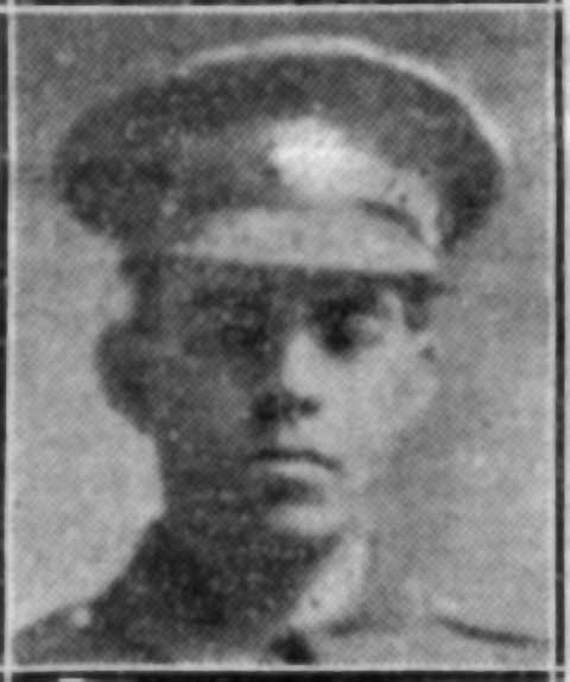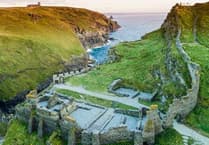THE centenary of the death of the man believed to be Hollacombe’s only WWI casualty was marked with an Evensong event in the church.
It was believed that Pte Percy Isaac, no. 203358, of the 9th Battalion Devonshire regiment, was killed in action on October 15, 1917, and on October 1, 2017, the congregation at Hollacombe church prayed for him during Evensong. ‘He has been remembered’.
Historian Shawn Dymond, from the Holsworthy Museum, provided the Post with more details of Mr Isaac’s life.
Mr Isaac was born at Northcott Cottage, Okehampton, on July 8, 1896. He was one of nine children — another brother was born after Mr Isaac but the child died in infancy — born to Frederick John and Mary Isaac, who are buried in the churchyard at Hollacombe.
His mother, Mary (nee Isaac), of Bradford, had been married in the opening months of 1886 and had initially settled at the home of her parents, William and Betsey, in the small hamlet of Middlecott, close to Bradford. Mr Isaac’s father was a farm labourer, originally from Shebbear.
The couple moved — with their two children Lily and Rose ‘ to Ivy Cottage, Okehampton in 1891 and remained there until 1897, in which time Mary gave birth to four more children. The family then moved to Hollacombe where Mr Isaac’s father found employment as a carter on a farm.
Mr Isaac’s childhood and formative years were spent at Hollacombe, though by 1911 he had left the family home and was residing with his mother’s parents at New Buildings, Bradford, where he worked in his grandfather’s large farm.
It was from Bradford that Mr Isaac enlisted into the Army, under the Derby Scheme, attesting at Holsworthy in mid December 1915, along with 19 others from Bradford and Cookbury.
Completing his training with the 4th (reserve) Battalion Devonshire Regiment, it is uncertain when Percy arrived in France, though it is believed it was not until the second half of 1916, when he was posted, amongst a group of replacements, to the 9th Battalion Devonshire Regiment.
By early October 1917 the battalion, and its sister battalion the 8th, were near Passchendaele enduring the worst of the Third Battle of Ypres.
Mr Dymond said: “Although we do not know the precise circumstances surrounding Percy’s death, we can make an educated assumption using the information that survives.
“It is known that he was initially wounded and evacuated from Polygone Wood (between Ypres and Zonnebeke) to a military hospital at Etaples — where he died on October 15.
“There are two possible circumstances in which Percy received the wound that was to prove fatal. Throughout the opening days of the month the battalion suffered heavy casualties from German shelling and, it is quite possible that Percy was amongst that number.
“Alternatively, the battalion was involved in a supportive assault on German lines on the afternoon of October 9 — as a part of what was later to become known as the Battle of Poelcappelle.”
The battalion suffered awful losses during October. There were 578 casualties including 69 killed, 356 wounded and 146 men missing.
Mr Dymond added: “The battalion was withdrawn from the front line from October 11, so [Mr Isaac] certainly received his wound prior to that date.”
As well as being remembered at Hollacombe church, Mr Isaac’s name appears on the Bradford war memorial.





Comments
This article has no comments yet. Be the first to leave a comment.